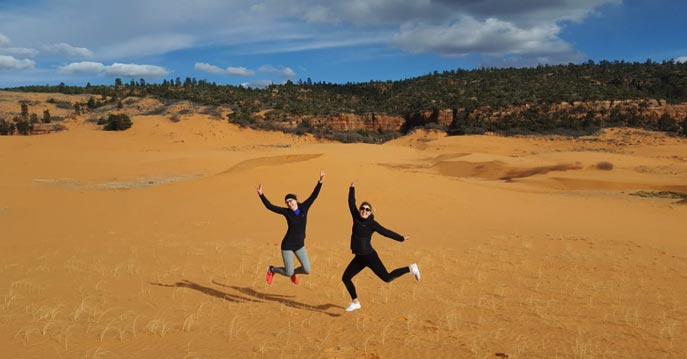Money Management in the United States

Going abroad brings many exciting and challenging moments, and managing money can be one of those simple things you forget to plan for! As money customs vary from country to country, CICD has created a quick guide to help you navigate the ins and outs of managing your money while on your J-1 visa program in the U.S.
Opening a U.S. bank account – While you are not required to open a U.S. bank account during your J1 program, most participants find it more convenient to access their money at a local bank. If your position is paid, your host company might require a U.S. bank account to send you funds via their payroll system.
Most U.S. banks will require you to provide a Social Security Number before you can open an account. You can apply for a Social Security Number once you have 1) Started your J1 program, and 2) Contacted CICD on arrival to validate your visa. To ensure that you can open a bank account as soon as possible, make sure to validate your program your first week on the program!
Keep in mind that some U.S. banks or credit unions are regional and you may not find branches while traveling around the U.S. It is important to research which bank offers the benefits you are looking for before opening your account.
Tips/Gratuities – It is customary to leave a “tip” when dining out in the U.S. A tip is a small percentage of your overall bill that (typically) is paid directly to your server. A tip is not required but usually expected if you are eating at a restaurant or have food delivered. If you do not leave a tip, it signifies that you were not satisfied with the service you received.
How much should you tip? Generally, between 15%-20% of your total meal cost. For takeout orders, your tip may be as low as 10%. You can leave a tip in cash or by specifying the tip amount on your credit card receipt.
If you are at a restaurant with a large group of friends (usually 6-8 people or more) you may be charged a “mandatory gratuity.” Check your receipt carefully for a mandatory gratuity before paying – there is no need to add an extra tip on top of it!
For coffee shops and fast food restaurants, it can be tricky to know when to tip. Often you’ll see tip jars near the cashier. Tips are greatly appreciated, especially if you feel that the service or food was exceptional. It’s best to pay attention and emulate what other customers in front of you are doing (this is great advice in general whenever you’re traveling in a foreign country!).
To simplify tip calculations, consider downloading a tip calculator to your phone, such as Divvy or Gratuity.
Haggling/Bartering – In many countries, it is customary to negotiate with a vendor to get your items for a lower price, especially for souvenirs. You will likely want to purchase a lot of keepsakes to remember your time, but keep in mind that it is not customary to haggle here in the U.S.! If you try to ask for a lower price, you may receive some mean looks from sellers or embarrass them. The answer will almost always be “no.” Instead of haggling, shop around. Similar businesses will often offer lower prices to be competitive and you may find the exact same item for cheaper at a different vendor.
Currency/Money – U.S. money comes in paper bills and smaller coins. Keep in mind that if you carry around “big bills,” such as one hundred dollar bills, some vendors (such as gas stations or boutique stores) may not accept them. It is best to carry a variety of bills, or use a credit/debit card for payment.
Please Note: Do not carry all of your money in cash. Take as much as you may need for the day and keep the rest secured in your bank account. Extra cash should be locked away where no one can else can access it (Hint: your mattress or top drawer are NOT safe locations).
Now that you know the ins and out of money customs in the U.S. it’s time to start spending some money to experience all the U.S. has to offer! Let us know how you’re managing your money while on your exchange by posting online using #CICDGo
Share your story!
CICD offers opportunities to win prizes by entering our photo contests. The most creative photos submitted during your J-1 program are chosen as the winners! Ask your coordinator if there is a contest going on right now!
One of the best things about an exchange program is the opportunity to share your experiences! Join CICD’s expanding network on Instagram or Twitter, using the handles @CICDinterntrainee @CICDworkandtravel depending on which program you are enrolled in. Use the hashtags #CICDParticipants #CICDGo #CICDSwt to share!
We are committed to providing opportunities to expand your global network. Share with CICD and better reach those in your industry! Want to learn more? Send us an email to marketing@cicdgo.com with your questions.










